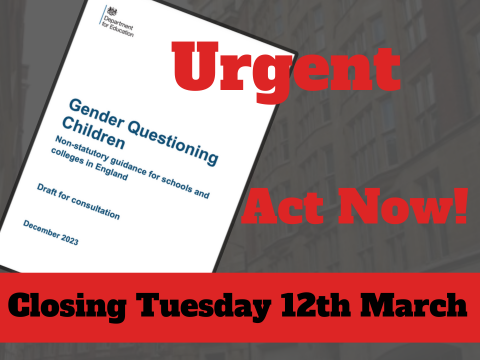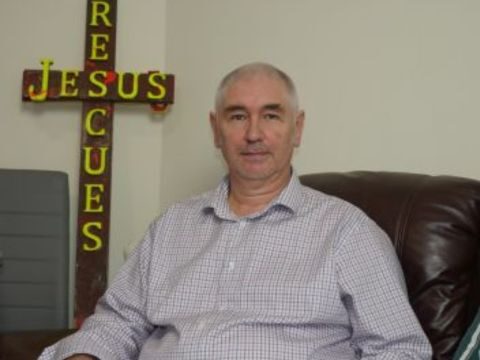

Contemptuous creed of the zealots who dictate sex lessons
This is the first in a series of four posts this week by researcher and writer Belinda Brown on why we should be very worried indeed about the Department for Education’s new compulsory Relationships and Sex Education (RSE) programme, as reported on yesterday’s TCW.
THE Government’s instruction to schools to roll out the controversial RSE programme from this September has been widely reported.
Much less known is that it is largely the brainchild of the Sex Education Forum, an organisation which emerged to counteract the ‘moral panic’ around sexuality and sexual orientation triggered by the AIDS epidemic.
The introduction of Section 28 in 1988 (which stated that a local authority shall not intentionally promote homosexuality or publish material with the intention of promoting homosexuality, or promote the teaching in any maintained school of the acceptability of homosexuality as a pretended family relationship, since repealed), garnered them further supporters.
The erroneous belief (see here) that sex education reduced sexually transmitted diseases and teenage pregnancies further amplified their voice.


Parents have a wide range of beliefs about what their children need to know about sex, which is based on their knowledge of their child’s stage of development, their own experiences, the environments their children grow up in and their religious and ideological beliefs.
This shapes their ideas about how sex education should be approached with their child. With compulsory RSE, the Government decided to take their influence away. Its offer of consultation over it was a form of compensation. In reality, it is a totally inadequate sop.
Firstly, what the Department for Education is offering parents is not ‘consultation’, but ‘engagement’. The aim is to provide parents with the opportunity to ‘feed in their views on the school’s proposed Relationships Education policy’.
However, they make it clear that while this ‘engagement’ may influence the timing and methods of schools’ approach to certain topics, there is no requirement to influence the content in any way.
In fact, schools must make clear to parents that though their views will be ‘genuinely reflected on to reach their final decisions’, they do not amount to a veto over curriculum content. Rather, this engagement has an end point, ‘at which plans and policies are decided, and the school explains to parents the conclusions they have reached and the curriculum approach they plan to adopt’.
A TES (formerly the Times Educational Supplement) guide to the RSE curriculum provides schools with some useful information about how to avoid what they call ‘the parent trap’: the risk of parents becoming too involved.
They suggest talking to parents in smaller groups. This appears to be a strategy to contain unrest. Schools are also advised to work privately with family situations and flashpoints. If you are a parent who might make difficulties, expect to be taken to one side.
The strategy is about de-escalating confrontation. They suggest allowing parents to win the argument, explaining that ‘you can win the battle later’. An explicit recognition that schools will win the war.
Most worryingly, the TES appears to have recruited Sarah Hewitt-Clarkson, a headteacher who was open about her decision not to consult parents, as an adviser for its article on parental consultation.
Hewitt-Clarkson gave reception-aged Muslim children books about childhood transvestitism and gay parenting. Her refusal to take parents’ concerns seriously resulted in protests. She is a byword for teachers regarding parents with contempt.
Any who challenge RSE should be prepared for this. The TES article talks about how the level of parental prejudice was ‘shocking’. ‘There was no way to reason with the views of some parents’, it says.
This contempt for parents filters down from the highest places. David Isaac, the chair of the Equality and Human Rights Commission, has suggested that headteachers need not consult parents when introducing LGBT elements into their child’s curriculum.
The Labour MP Lloyd Russell-Moyle, during a parliamentary debate, argued that parents must not be consulted, casting those who disagreed with his ‘progressive morals’ as ‘fanatical bigots’.
His argument that since we don’t ask parents about what they want their children taught in geography and maths, why ask them about RSE, is entirely spurious.
Geography and maths concern acquiring a body of knowledge in preparation for functioning in the workplace. RSE concerns the most profoundly personal and intimate beliefs about how we should conduct our private lives.
Ironically, while the powers-that-be mock the idea of consulting parents, consulting children is given pride of place. Yet we never think to consult children about what they want to learn in maths and physics. Somehow the argument doesn’t work the other way around.
As parents, it is our primary and most important duty to protect our children. But it is impossible while the Sex Education Forum call the shots.
We all know that Warwickshire County Council withdrew the All About Me programme, which encouraged six-year-olds to masturbate, under threat of legal action.
What is less well-known is that the SEF still suggests schools use a ‘standard-setting’ World Health Organisation document for defining the contents of the curriculum which states (page 40) that children should be informed about masturbation from the ages of 0-4.
Nor can we count on the Government to protect our children. It did nothing to protect the children who were exposed to the profoundly disturbing Respect Yourself and the All About Me material.
At the time of writing, yet another story has emerged of children being given homework which risked exposing 11-year-olds to hard core porn.
Nor, sadly, can we trust the Government and its education advisers to respect the law regarding the philosophical and moral convictions of families. This profoundly blasphemous and even satanic video is advocated in an exercise for 13-year-olds in a book by an SEF adviser.
Nor can we expect our children be protected by obscenity laws. When the Sexual Offences Act was drafted in 2003, the Sex Education Forum ensured that it could go on showing graphic and potentially disturbing images to children. As long as it was educational, it wouldn’t be classed as porn.
Far from protecting our children, the Government has issued advice on how to take out injunctions against parents, how to involve the police, or impose fines on anyone else who should try to do this job.
This is why it is so vital that we take the introduction of Relationship and Sex Education seriously. This is a whole new subject which is being introduced into the curriculum throughout all key stages.
It contains a significant amount of material and it concerns the deepest ways in which we think about our place in the world, our relationships and the sort of ethos on which we conduct our lives. Parents will not be able to withdraw their children in any meaningful way.
In two further posts this week, I will show how those creating this material have very different ideas from you or me.
If you would like to stay in touch with campaigns to challenge RSE please go to https://www.schoolgatecampaign.org/ or https://parentpower.family/
Belinda Brown
This article is reproduced by kind permission of Conservative Women.
The views expressed don’t necessarily reflect those of Parent Power.






